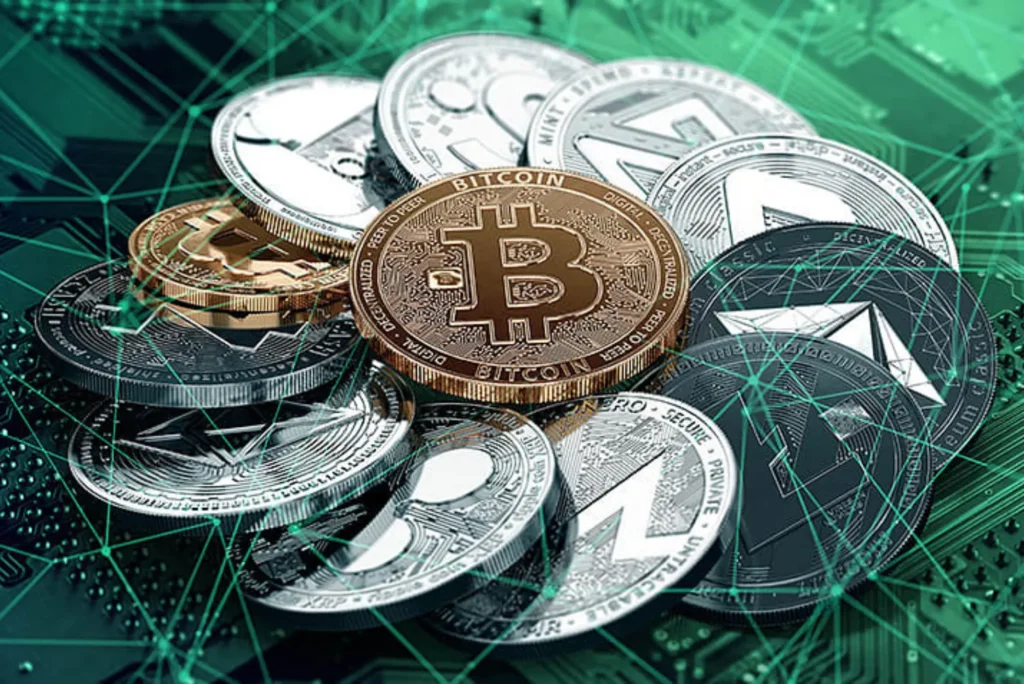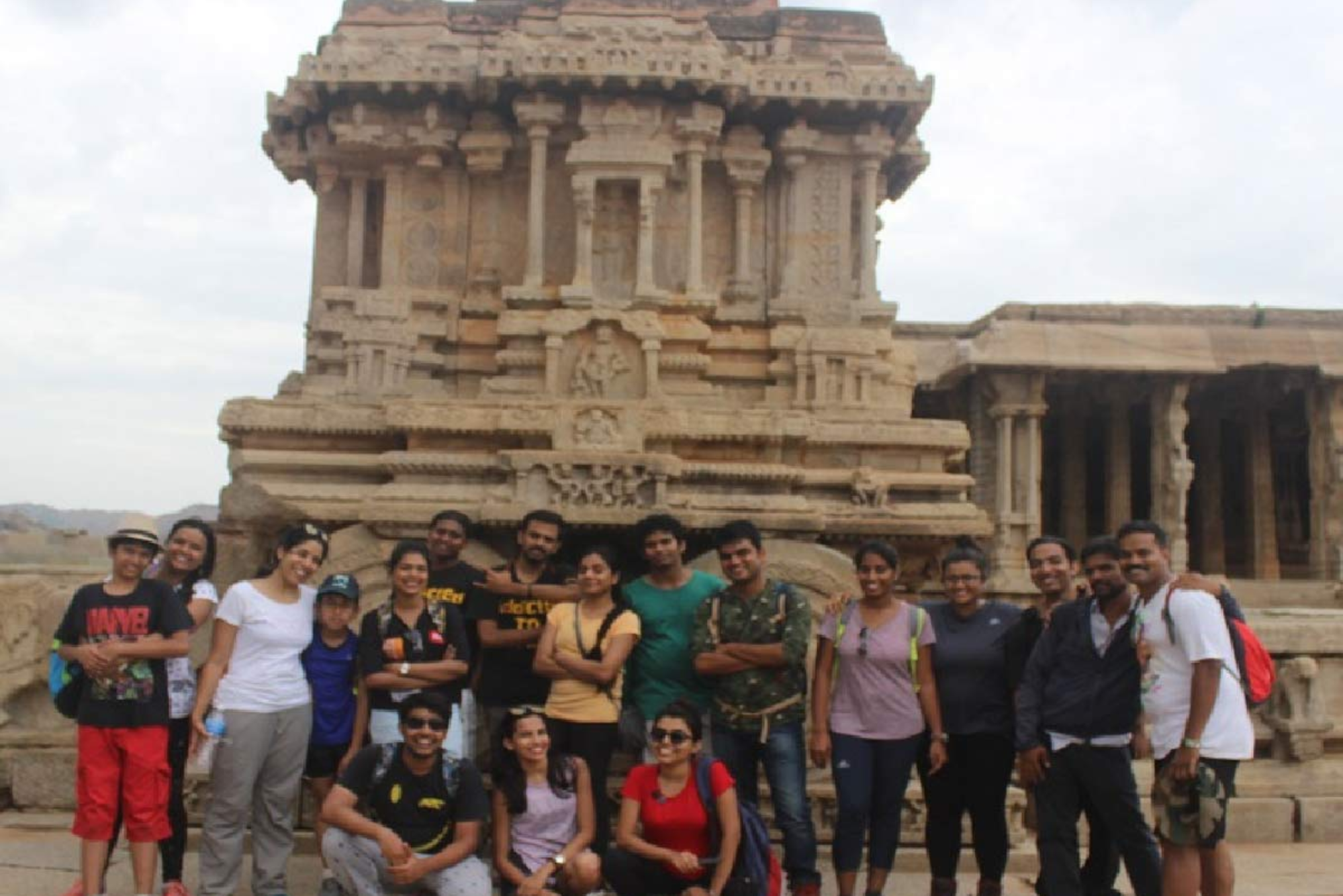Cryptocurrency has become a buzzword in the financial world, but what exactly is it? This guide aims to explain the concept of cryptocurrency, its workings, and its implications, especially focusing on “cryptocurrency mining in India.”
Basic Concepts of Cryptocurrency
Key Characteristics
Decentralization: Unlike traditional currencies controlled by governments and banks, cryptocurrencies operate on a decentralized network of computers.
Blockchain Technology: This is the underlying technology behind most cryptocurrencies. A blockchain is a distributed ledger that records all transactions across a network, ensuring transparency and security.
Cryptographic Security: Cryptocurrencies use cryptography to secure transactions and control the creation of new units. This makes them highly secure and resistant to fraud.

Types of Cryptocurrencies
Bitcoin: The first and most well-known cryptocurrency, often referred to as digital gold.
Ethereum: Known for its smart contract functionality, allowing developers to build decentralized applications.
Altcoins: This term refers to all other cryptocurrencies besides Bitcoin. Examples include Litecoin, Ripple, and Cardano.
How Cryptocurrency Works
Blockchain Technology
A blockchain is a chain of blocks, each containing a list of transactions. When a transaction occurs, it is added to a block, which is then added to the chain. This process is decentralized, meaning no single entity controls it.
Cryptographic Security
Cryptocurrencies use public and private keys to ensure secure transactions. A public key is like an address where others can send you cryptocurrency, while a private key is used to authorize transactions from your account.
Cryptocurrency Mining
What is Mining?
Mining is the process of validating transactions and adding them to the blockchain. Miners use powerful computers to solve complex mathematical problems that confirm transactions. This process secures the network and releases new coins into circulation.
Proof of Work vs. Proof of Stake: Proof of Work (PoW) requires miners to solve problems to validate transactions, while Proof of Stake (PoS) relies on validators who stake their coins to propose and validate transactions.
Hardware and Software Requirements
Mining Equipment: Specialized hardware like ASICs (Application-Specific Integrated Circuits) and GPUs (Graphics Processing Units) are commonly used for mining.
Mining Software: Various software options are available for different cryptocurrencies and mining setups.
Cryptocurrency Mining in India
Current Landscape
Cryptocurrency mining has gained popularity in India, with several mining operations and enthusiasts contributing to the network. The availability of relatively affordable electricity and technological advancements have spurred this growth.
Regulatory Environment
The Indian government has had a cautious approach towards cryptocurrency. While there is no outright ban on mining, regulatory uncertainties pose challenges. The government continues to evaluate and develop policies to address the legal aspects of cryptocurrency.
Economic Impact
Mining contributes to the economy by creating jobs and attracting investments. It also encourages technological advancements and innovation in related fields.
Benefits of Cryptocurrency
Financial Inclusion
Cryptocurrencies provide financial services to individuals who lack access to traditional banking. This is particularly important in regions with underdeveloped banking infrastructure.
Lower Transaction Costs
Transactions with cryptocurrencies typically have lower fees compared to traditional banking and international transfers.
Enhanced Security and Privacy
Cryptographic security ensures that transactions are secure and private, protecting users from fraud and identity theft.
Risks and Challenges
Market Volatility
Cryptocurrencies are known for their price volatility, which can lead to significant financial losses for investors.
Regulatory Uncertainty
The regulatory landscape for cryptocurrencies is still evolving. This uncertainty can affect the adoption and value of cryptocurrencies.
Security Concerns
Despite their security features, cryptocurrencies are not immune to hacking and fraud. Proper measures must be taken to secure digital wallets and transactions.

How to Get Started with Cryptocurrency
Setting Up a Digital Wallet
A digital wallet is essential for storing and managing cryptocurrencies. There are various types of wallets, including hardware, software, and paper wallets, each offering different levels of security.
Buying and Trading Cryptocurrencies
Cryptocurrencies can be purchased on exchanges using traditional currency. Trading involves buying and selling cryptocurrencies to make a profit, and it requires understanding market trends and strategies.
Basics of Mining
To start mining, you need appropriate hardware, software, and an understanding of the mining process. It’s essential to consider the costs involved, including electricity and equipment.
Future of Cryptocurrency
Technological Advancements
Emerging technologies, such as scalability solutions and decentralized finance (DeFi), promise to enhance the functionality and adoption of cryptocurrencies.
Predictions for Market Growth
Experts predict that cryptocurrencies will continue to grow and integrate into the global financial system, though they may face regulatory and technological challenges.
Impact on Global Finance
Cryptocurrencies have the potential to reshape financial systems by providing more inclusive and efficient financial services.
Cryptocurrency represents a revolutionary shift in the world of finance, offering benefits like security, privacy, and financial inclusion. However, it also comes with challenges, including regulatory uncertainty and market volatility.
Staying informed and cautious is crucial for navigating this dynamic and evolving landscape. As cryptocurrency continues to grow, it is set to have a profound impact on the global economy.











